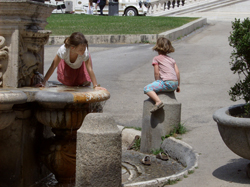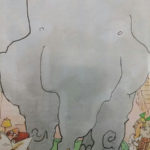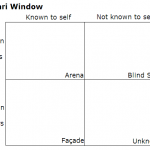Ages 3-5: Initiative vs. Guilt

© Susan Todd-Raque
Erickson’s third stage of development is referred to as the Initiative versus Guilt stage that normally begins around the age of 3 and runs thru the age of 5. Cognitively, children at this age continue to be in what Jean Piaget called “concrete operations stage”. Simply put, children at this stage are unable to understand abstract concepts such as justice or equality. Hide and seek is still a fun game for children this age. If you have a two year old, take a ball, hide it behind your back, drop the ball and then show your child your hands. They will have no clue the ball is behind you. By age four most children will have figured it out.
Parental discipline begins to become more prevalent and challenging in this stage primarily because of the child’s increased mobility and the emerging sense of self through the idea of Initiative. If your child is strong willed you will need to learn to find that balance between bending and breaking. On the other hand, this is also the time when a child’s fears can develop, and how you respond to those fears can be the difference between a child who develops unrealistic anxieties and one who doesn’t. If you punish an already anxious child for their exploring by opening a door to go outside because they were curious, you can inadvertently shut down their curiosity because of your own anxiety. At this stage Guilt could keep them from having normal curiosity in life and exploring their world.
Imitation is one of the most prevalent forms of initiation at this age. “Monkey see, monkey do” becomes very active during this time of development. As a parent you really do need to watch what you say and do in front of them and closely monitor what you watch on TV when they are in the room. Otherwise, you can have some embarrassing moments. An example of a child’s concrete thinking had to do with a story a mother told me about taking her 4-year-old daughter to an art museum. The mother was exposing her daughter to art and they were looking at the Byzantine piece, Madonna and Child. This was also the time when Madonna, the pop singer, was in her prime. After carefully reading the wall texts, her daughter turned around to her mother and said, “that doesn’t look like Madonna.”
Many children during this Initiative stage make up stories and always want to know why. And even when you tell them the answer, they still want to know why. Their brains are working hard to fit in all the pieces of life’s puzzles. So, the key word for parents is patience at this stage. Social etiquette is also something they are learning and gentle guidance is needed here. I remember one child I was seeing during this stage was playing on the floor as we talked. He looked up at me and said “Dr. Raque, you have a big nose.” I laughed at his observation and agreed with him.
Next week I am going to address spanking as a form of parental discipline since parents need guidance on what is proper discipline and the 3 to 5 year age range is a good stage to set the boundaries.






